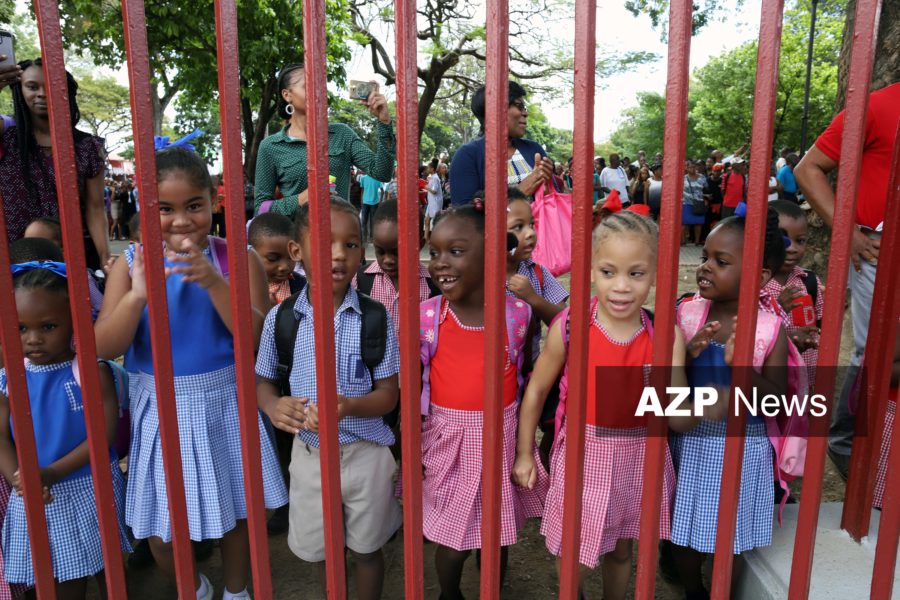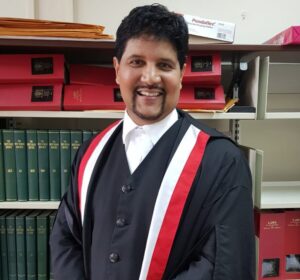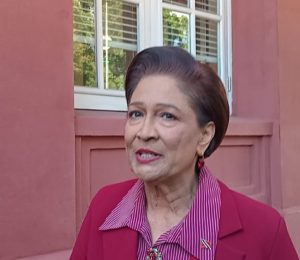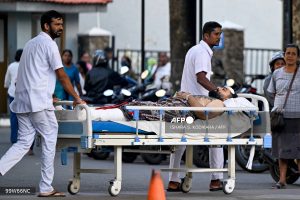By Sue-Ann Wayow
ALL children attending Early Childhood Care and Education (ECCE) centres, primary schools and secondary schools will be required to attend physical school daily from April 19.
There will be no more rotational schedules and the school’s normal timetable will be followed.
This was revealed on Monday during the Ministry of Education’s media conference to update the public on the complete reopening of schools including tertiary-level institutions.
Director of School Supervision Joy Griffith outlined the ministry’s measures in preparing for the new phase in the Covid-19 pandemic.
These include:
-
No rotational system;
-
Prerecorded messages advising pupils of the importance of health and safety protocols;
-
Prefect, staff and security patrols during breaks to ensure health protocols are being maintained;
-
Necessary signage to increase awareness of Covid-19 protocols;
-
Relaxed uniform guidelines;
-
Resumption of all sporting and extra-curricular activities; and
-
Full resumption of the school feeding programme and school transportation service.
Acting Chief Education Officer Lisa Henry-David said the previous health protocols remain in place – mandatory mask-wearing, sanitising points throughout the schools’ compounds and temperature checks upon entry.
A quarantine area must also be identified for teachers and pupils who may be exhibiting signs of Covid-19.
Henry-David also reinforced the non-sharing of materials, books, food and even hand sanitiser amongst pupils.
In giving further information about the ECCE centres, Ministry in the Ministry of Education Lisa Morris-Julian said the young children will not be required to wear masks and will operate in a “bubble approach” and would not be encouraged to interact with others from another group.
Director of Curriculum Division Anna Singh spoke about the resources which have been provided to assist with mitigating with learning loss.
“We created what we call an adapted optimal learning guideline. In these guidelines, we have emphasised minimum outcomes for every level, every subject from infant One to Form Three.”
CXC was responsible for the syllabus from Forms Four to Six and has provided in a handbook topic support for pupils.
Singh said, “ No curriculum has been contracted or reduced. What we have done is we have supported our students and our teachers to be able to cover the minimum outcomes knowing that in different circumstances, more coverage can be accomplished.”
The mental health of children has also been taken into consideration.
Repairs were undertaken in 198 schools and all should be completed when school re-opens for the third academic term.
Minister of Education Dr Nyan Gadsby-Dolly thanked everyone who worked hard to ensure the re-opening of physical school including all stakeholders and the Tobago House of Assembly (THA).
She said there were only six countries that have still not yet allowed the opening of physical school.
Admitting it was a difficult and long journey since schools closed on March 16, 2020, and re-opened on a phased basis, Dr Gadsby-Dolly said it was a relief for the ministry to reach this particular re-opening stage.
The minister said the ministry has been able to meet with most stakeholders prior to Monday’s press conference except the Trinidad and Tobago Unified Teachers’ Association (TTUTA) but they continue to be in communication.
As the ministry embarks on this new phase, she said if necessary, adjustments will continue to be made to the education system to ensure efficiency.
At the moment, synchronized online classes to accommodate persons not attending the physical classroom was not mandatory, Dr Gadsby-Dolly said.
The minister said, “The effect of our children not being in school cannot be overstated. It has been a very difficult time and so we are very happy to be at this point based on our Covid management strategy for the country to be able to announce this.”
Reminding citizens that the Covid-19 pandemic was not yet over, Dr Gadsby-Dolly said the measures will remain as long as the country’s Covid-19 situation also is maintained.
![]()















Philip Franco
March 30, 2022Mask Wearing
A meta-analysis of the research on mask wearing concludes that mask wearing is not beneficial and that they are actually harmful.
The wearing of masks restricts our ability to breathe in Fresh Air. Many can attest to the fact that when they use a mask even for brief periods, that they feel severely disoriented, confused, dizzy and generally unwell. Co2 levels have been measured within the masks and the levels are way beyond what is considered industry safe by OSHA.
Mask wearing limits oxygen intake and causes re-inhalation of carbon dioxide, but what is not known to most is the fact that CO2 is not the only gas being expelled, and that our respiratory system is also an excretory channel for Volatile Organic Compounds (VOCs) and we exhale acetone, isoprene and other hydrocarbons and alcohols. Hydrocarbon pneumonia results from a build up of VOCs in the airways and symptoms of difficulty breathing, coughing, wheezing and fever results.
Masks wearing promotes a breeding ground for pathogens on and around the mask itself due to the moisture being trapped and relative to the amount of time worn without changing.
Masks restrict communication with others, as speech is muffled and our facial expressions are hidden. Facial expressions are part of our verbal and non-verbal communication. Contrary to Natural Law is this hindering one of our primary survival mechanisms “Communication”.
There is no evidence that mask wearing is beneficial in stopping the spread of the virus. While it’s been shown that respiratory droplets travel as aerosols a particular distance, it has never been shown that a virus travels on those droplets or infects others via aerosols.
Further, putting masks on children to wear for hours in school is nothing less than criminal.